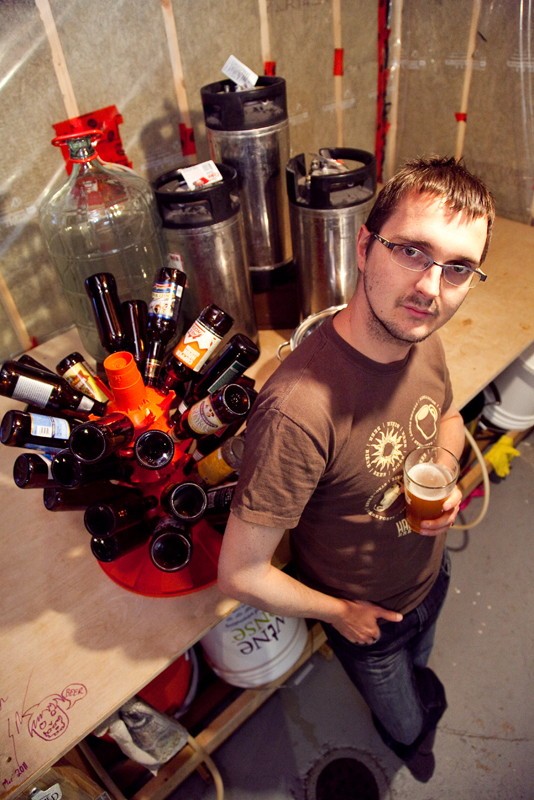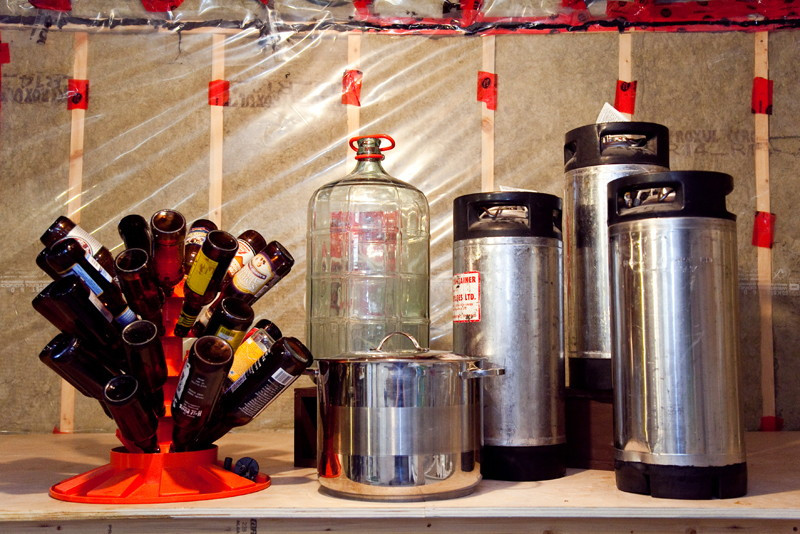Party like it’s prohibition
Making wine and beer at home can cut your social lubricant costs significantly
If you’ve ever spoken to someone from Europe, or even from Quebec, you’re probably aware that Manitobans pay a relatively huge amount of money for the same brands of beer and wine.
But a little ingenuity can fix that inequity.
For a small investment of time, energy and patience, you can drink yourself silly for a fraction of the cost.
Brewing wine and beer in the comfort of your own home might sound like a terrible idea to the uninitiated, but it’s actually pretty straightforward.
“People seem to think that it’s going to be more difficult than it really is,” says Steven de Groot, manager at Moonshiners Unlimited. “Once I explain the process to them, they feel much more comfortable.”
De Groot says that many of his first-time customers ask him how many batches it will take before they can expect to produce a quality product. He tells them that if they follow the instructions, there’s little opportunity for things to go terribly wrong.
“I don’t think I’ve ever had someone come back and say that their first batch was totally messed up,” he says.
You don’t have to convert your basement into a lab, either.
“Most people generally have a desk or just a corner in their basement to store the stuff,” de Groot says.
Probably the most unnerving part of the process is the waiting. A batch of beer or wine can take anywhere from four to six weeks to complete, depending on the kit.
“ I don’t think I’ve ever had someone come back and say that their first batch was totally messed up.
Steven de Groot, manager, Moonshiners Unlimited
While this may sound like a recipe for eternal hardship and toil, de Groot estimates that the hands-on work required for the process is somewhere around an hour and a half for wine or a bit less for beer. A large part of this is sanitizing used bottles, which is a great way to keep costs low.
But what are these low costs, you ask? After an initial investment of $70 to $80 on all the necessary equipment, wine kits go from around $45 all the way to $115. Beer kits are even cheaper at $21 to $27.
All kits, whether beer or wine, produce 23 litres. That’s the equivalent of 37 standard bottles of wine or 66 bottles of beer.
All these numbers mean wine for loonies and toonies and beer for mere quarters.
De Groot says that a $1.50 bottle of home-made wine is roughly equivalent to the lower range of wine found at most stores for $8-$10. The $4 stuff is off the charts.
“You might not be able to find anything that nice at the MLCC,” de Groot says. “But you’d be spending at least $25 or $30 dollars on that type of wine.”
If those price differences seem absurd, you’re not alone in thinking so.
“I really have no idea as to how they can possible charge that much, to be honest,” de Groot says. “It just seems completely ludicrous.
“The equipment plus the wine is cheaper than buying equivalent wine at the Liquor Mart.”
Published in Volume 66, Number 23 of The Uniter (March 14, 2012)








